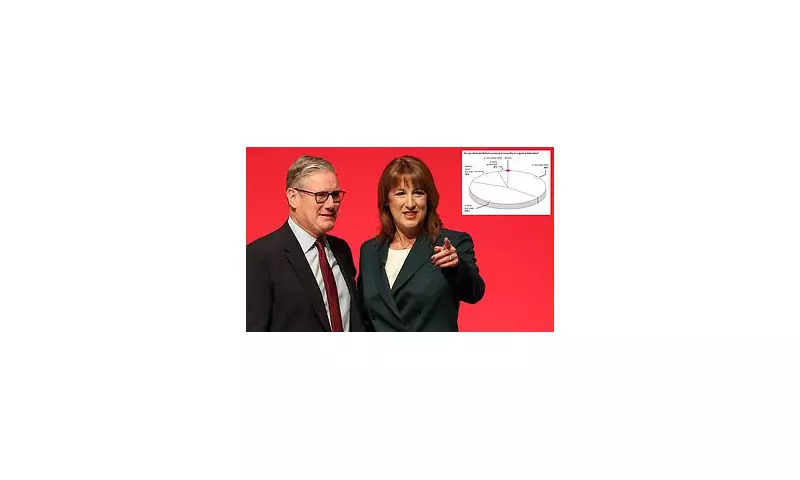
Public confidence in Britain's economic prospects has collapsed to unprecedented levels under the Labour government, according to a shocking new poll that delivers a devastating verdict on Keir Starmer's administration just months after taking power.
Poll Reveals Economic Confidence Crisis
The YouGov survey conducted ahead of next week's crucial Budget found that zero percent of Britons now believe the economy is in a 'very good state'. Only four percent rated current economic conditions as 'fairly good', placing economic optimism on par with public approval of the disgraced former prince, Andrew Mountbatten-Windsor.
In stark contrast, the poll reveals overwhelming economic pessimism among the British public. Some 44 percent of people think the economy is in a fairly bad state while 35 percent described the economic situation as 'very bad', creating a substantial majority who view current conditions negatively.
Labour's Economic Management Under Fire
The survey findings represent particularly grim reading for Chancellor Rachel Reeves and Prime Minister Keir Starmer, with minimal public support for their handling of the economy. Just one percent of respondents said the Labour leadership is doing 'very well' on economic management, while only 13 percent rated their performance as 'fairly well'.
By comparison, 77 percent of those surveyed believe the government is doing fairly or very badly in managing the nation's finances. Even among those who voted Labour in last year's general election, the survey found more than twice as many people now believe the party is making a bad job of handling the economy.
These bleak findings prove devastating for a party that placed economic competence at the heart of its government project and built its election campaign around fiscal responsibility and stable management.
Budget Chaos and Tax Fears
The collapse in confidence follows what many observers are calling the most chaotic pre-Budget period in recent memory. The Chancellor initially dangled the prospect of the first rise in the basic rate of income tax for half a century, only for the Treasury to execute a panicked U-turn just days later amid mounting political backlash.
Fears are mounting at Westminster that the Chancellor may be preparing to unleash another punishing tax increase when she finally reveals her Budget plans next week. Shadow Chancellor Sir Mel Stride didn't hold back in his criticism, stating: 'We are witnessing the most shambolic pre-Budget period in memory. The constant leaking, briefing and kite-flying is fuelling uncertainty and damaging our economy.'
Sir Keir Starmer yesterday refused to rule out extending the long-running freeze on tax thresholds, despite Ms Reeves previously warning that such a move would 'hurt working people' and constitute breaking Labour's manifesto commitments.
Analysis by the Institute for Fiscal Studies reveals that extending the freeze another two years would cost basic rate taxpayers an additional £405 annually by the end of the decade, while higher rate taxpayers would face an extra bill of £1,129. The move would also drag an extra million individuals into the income tax system, including many surviving on state pensions.
This stealth tax raid would raise approximately £8.5 billion – roughly equivalent to the cost of Labour's abandoned welfare cuts and the expected lifting of the two-child benefit cap.
Business Warnings and Political Stakes
Business leaders have intensified warnings that their sector cannot withstand a repeat of last year's tax raid on employers. Paul Greenwood, UK chairman of ExxonMobil, which announced the closure of a major ethylene plant this week, told the BBC: 'The Government needs to understand that the whole industrial base of the UK is at risk unless they wake up and realise the damage their economic policies are doing.'
The Chancellor has indicated she will be 'taking targeted action to bring down inflation to address the cost of living' in next week's Budget. She is expected to unveil measures to cut approximately £150 off energy bills by funding green levies through general taxation, alongside a four percent rise in the minimum wage and similar increases in benefit payments.
Ms Reeves has also briefed Labour MPs that she is planning to impose a form of 'mansion tax', either through an annual levy on expensive homes or by hiking council tax on properties in bands F, G and H.
The political stakes for both the Prime Minister and Chancellor couldn't be higher, with allies reportedly fearing they could be ousted if the Budget unravels and fails to restore public confidence in their economic stewardship.





